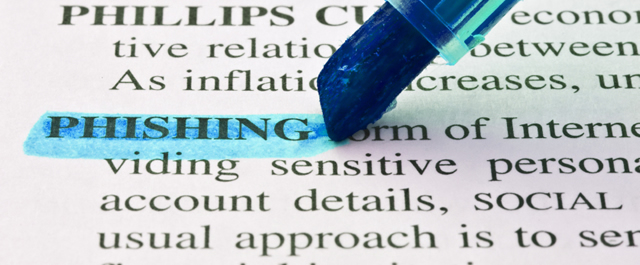
You've probably heard about identity theft - people stealing other people's personal information
to use for illegal purposes. In a new scheme called "phishing", ID thieves trick people into
providing their credit card numbers, PINs, passwords, account data, or other personal
information by pretending to be someone they're not.
A deceptive scam designed to steal your valuable personal data, the term phishing comes from the fact that Internet scammers are using increasingly sophisticated lures as they "fish" for users' financial information and password data. Con artists might send millions of fraudulent e-mail messages that appear to come from websites you trust, like your bank or credit card company, and request that you provide personal information.
As these scam artists become more sophisticated, so do their phishing e-mail messages and pop-up windows. They often include official-looking logos from real organisations and other identifying information taken directly from legitimate websites.
How to tell if an e-mail message is fraudulent?
While online banking and e-commerce is very safe, as a general rule you should be careful about
giving out your personal financial information over the Internet.
Here are a few phrases to look for if you think an e-mail message is a phishing scam:
"Verify your account."
Businesses should not ask you to send passwords, login names, or other personal information
through e-mail. If you receive an e-mail from any bank asking you to update your credit card
information, do not respond: This is a phishing scam.
"If you don't respond within 48 hours, your account will be closed."
These messages convey a sense of urgency so that you'll respond immediately without thinking.
Phishing e-mail might even claim that your response is required because your account might have
been compromised.
"Dear Valued Customer."
Phishing e-mail messages are usually sent out in bulk and often do not contain your first or
last name.
"Click the link below to gain access to your account."
HTML-formatted messages can contain links or forms that you can fill out just as you'd fill out
a form on a website. The links that you are urged to click may contain all or part of a real
company's name and are usually "masked", meaning that the link you see does not take you to that
address but somewhere different, usually a phony website.
Con artists also use Uniform Resource Locators (URLs) that resemble the name of a well-known
company but are slightly altered by adding, omitting, or transposing letters. For example, the
URL "www.republicbanksr.com" could appear instead as:
www.repubicbanksr.com
www.republiccbank.com
www.verify-republicbanksr.com
USEFUL TIPS CATCH PHISH
We, at Republic Bank Group are concerned about your security. Our Group serves many people
throughout Trinidad and Tobago and the wider Caribbean and our customers choose us as providers
of sound, secure and solid financial services. Our strength is built on confidence because we
continue to deliver security in every facet of our business. We are committed to providing a
secure banking environment for our customers and we want to share some helpful hints and tips
with you. When followed, these tips will help to reduce the cost of fraud to all and provide
peace of mind when conducting your banking.
You can contact Republic Bank's Call Centre to report any suspicious activity or to simply get information or guidance. You can reach our Call Centre at 471-555 or send an e-mail to: internetbanking@republicbanksr.com
RepublicOnline is a Trademark of Republic Bank LimitedAll Rights ReservedDisclaimerLegalPrivacy